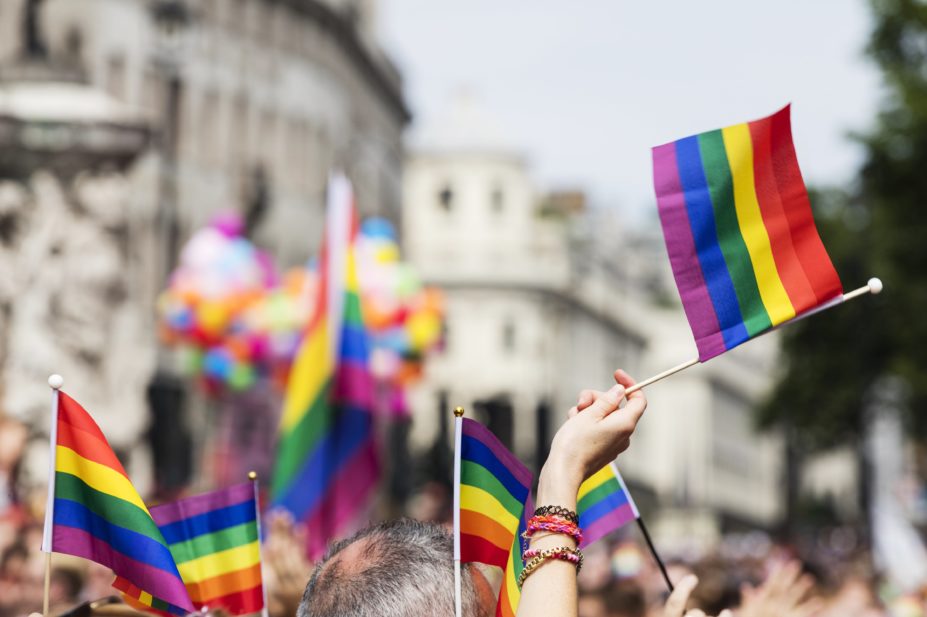
Shutterstock.com
Homo-, bi- and transphobia are all pervasive issues in modern Britain, with hate crimes against all of these marginalised groups increasing and what feels like an ever-growing factionalisation of ‘normal’ versus ‘abnormal’ people.
Queer people should feel safe in the healthcare setting and, more specifically, the NHS, but as Pride month draws to an end, it still alarms me how little the NHS has done in terms of advocating for further education and acceptance.
The challenges that lesbian, gay, bisexual and transgender (LGBT) people face in society still leak in to our health service. Satisfaction ratings of services for LGBT people are much lower than the general population. One of the biggest challenges faced in practice is changing heteronormative attitudes, as being heterosexual and cisgender is often assumed and accepted as the status quo.
Owing to this assumption, healthcare professionals may be intentionally or unintentionally disrespectful to LGBT patients when they reveal their identity to them. This can lead to people concealing their identities to reduce the risk of misguided questions. In a time where one in ten health and social care staff have heard colleagues express that being gay can be ‘cured’, I feel as though we have a lot of work to do to ensure that we no longer accept only heterosexual patients as ‘normal’ patients.
Failure to recognise LGBT patients means that the health service is unable to link their sexual orientation and/or gender identity to their specific health needs. Many LGBT people experience frequent victimisation as a direct consequence of their minority status. Life-long stigma and prejudice means that LGBT people are more likely to suffer from depression, anxiety and substance abuse, and more likely to die from suicide, when compared with the general population.
Despite these facts, three in five NHS staff don’t believe that sexual orientation and gender identify is relevant when treating a patient. However, this shouldn’t come as a surprise when a quarter of NHS staff have never received any equality or diversity training.
The lack of education for healthcare professionals starts at universities. For example, during my MPharm, I was never taught about the health needs or inequalities faced by LGBT patients. When referring to gay and bi men, we speak about ‘men who have sex with men’ or, even more colloquially, ‘MSM’. It’s as though we can’t bring ourselves to utter the word ‘gay’ in an educational space without fear of sniggering from students.
This alienation of LGBT people in the classroom not only fails patients in the long run, but also impacts LGBT people joining the workforce. More than 100,000 LGBT people work for the NHS and we allow our own workforce to be in the firing line of both obvious and covert homophobia. When I worked as a student, I was told by other pharmacists that I was “too young to know” that I was gay and that PrEP should not be available on the NHS because we “made the choice” to be gay.
I was petrified to report them, because in a strange train of thought, I genuinely blamed myself for their response to my existence. A friend of mine was working as a pharmacy lecturer in a reputable London organisation when he had an official complaint made against him by students for being openly gay. The students did not believe that a gay man should be teaching them and to think: they are all probably pharmacists now.
The purpose of this piece is not to give suggestions about how to be a better ally; I don’t believe it’s my job to educate people on the application of basic humanity. It is to serve as a reminder that queer people exist within healthcare — whether that be your patients or colleagues — and are consistently being let down on either side. It is your job to change that and you have a duty of care to ensure that institutional discrimination doesn’t leach into your daily practice.
Callum Garner is a preregistration pharmacist, South Tyneside and Sunderland NHS Foundation Trust, Tyne and Wear.
You may also be interested in

Calling the shots: the pharmacists combatting vaccine misinformation

Embedding quality improvement in pharmacy practice: a departmental strategy at University Hospitals of Derby and Burton
